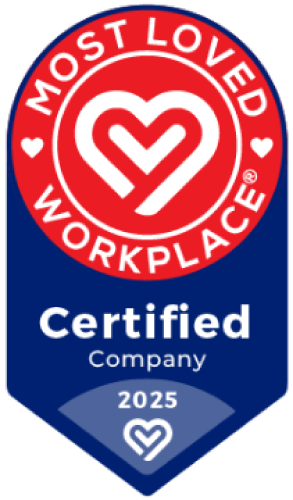Scammers Add New Targets During Pandemic
Here are some of the many ways scammers are trying to target consumers and businesses during the coronavirus crisis.
Financial Relief Claims: Don’t Fall For These Offers
Through the CARES Act, the government is providing billions of dollars in relief to individuals and businesses.
For those who qualify, consumer aid is coming in the form of stimulus payments issued through the IRS. For businesses, the Small Business Administration is offering two programs: The Paycheck Protection Program, and the Emergency Injury Disaster Loan.
Scammers already are using fraudulent calls, texts, and emails claiming quicker access to the money or offering fee-based services to get it.
The IRS will automatically send consumer stimulus payments as direct deposits or as checks via the mail. Direct-deposit funds have already started arriving and checks will follow. Anyone calling or emailing you asking for personal or account information to make this happen is a scammer. For information about relief payments and whether you qualify, visit irs.gov/coronavirus.
This advice holds true for businesses. Don’t be tricked by unsolicited requests for personal information or payment requirements. For information about SBA funds, visit the Coronavirus Relief Options page or contact your financial institution.
Unemployment benefits scam: Imposters may be using your information
The FTC is warning people about a widespread scam where imposters are filing for unemployment benefits under the names of people who have not filed claims, meaning the crooks have obtained and are using a person’s Social Security Number and birth date.
If you get a notice from your state unemployment office or employer about a benefits application, here are some things to look out for and do if it happens to you:
- Immediately report the fraud to your state unemployment benefits office, doing so online if possible. You should also report the issue to the FTC at IdentityTheft.gov.
- Report the fraud to your employer.
- Keep records of who you contacted about the issue and when.
- While the benefit money is usually sent to an account under the scammer’s control, it could actually be sent to your account and the scammers may try to contact you claiming to be from the unemployment office and asking for you to transfer the money to an account they specify. Don’t respond to such a call, text or email. Instead, report it directly to your state’s unemployment agency.
If you are an employer, alert your workers to this scam and ask them to report a fraudulent claim to HR as soon as possible. Notify employees about any suspicious claim your business gets and report the fraud to your state unemployment agency.
Fraudulent Email And Texts: Don’t Click On Links Or Download Files
For consumers, it might be email or texts claiming expert information, threats of utility cutoffs or money offers. For businesses it could be fake invoices, lies about hard-to-find products, or faked email from executives requesting payments or company information.
Unsolicited or unexpected emails could be used to download malware onto your device or take you to forms requesting personal information. If you’re unsure of a request, verify it directly with a phone call or visit an official website and explain why you are making contact.
Contact-Tracing Scams: Here Are Some Things To Watch Out For
The Federal Trade Commission is warning people about contact-tracing scams related to the coronavirus pandemic. Contact tracing is a way for health departments to alert people to possible exposure to someone who has tested positive for COVID-19. To alert someone, these official tracers might send a text message to let people know they’ll be getting a phone call explaining the situation, and the tracer may ask a potentially exposed person if they would like to receive health and safety reminders via text updates. While this can be a helpful way to control the spread of COVID-19, legitimate tracers won’t ask for personal information or money.
If someone contacts you claiming to be a contact tracer and also asks for things such as your Social Security number, credit card or bank account numbers, or seeks some form of payment, it’s a scam. The same goes for text warnings of possible exposure that contain links to websites. Clicking on that link could download malware onto your device that allows scammers to access financial or personal information. If you think the call is a scam, hang up. If you think the text is a scam, delete it.
Robocall Scams: Hang Up Or Don’t Answer
These calls range from someone claiming to be selling goods in short supply such as face masks, to non-existent test kits, to claims about a business’s online information being listed incorrectly. Some even include late-payment threats or pleas from charities.
Either ignore the call or immediately hang up. Don’t give out any personal or financial information. If suspect a call could be valid, hang up then look up and call an official phone number, explaining why you are calling.
Tech Support Fraud: Train Staff To Be Wary
Many people are now working from home or spending more time on their computers. Scammers know this and are claiming to be from tech support or the IT department. They might ask you for usernames and passwords or want you to let them access your computer to fix a problem.
This can lead to placement of malware on devices or open access to financial accounts or important company data. Businesses should train employees to avoid this type of fraud and to report these calls to supervisors.
Social Security Fraud: Don’t Give Out Personal Information
Some fraudsters are pretending to represent the Social Security Administration and are trying to get your money or Social Security number. They might threaten to withhold funds or seize your account.
The Social Security Administration will not call to threaten your benefits or ask you to send them money. They won’t threaten to suspend your number or seize your financial accounts. If someone calls unexpectedly and asks for your Social Security number, don’t give it to them.
Fraudulent Health and Other Supplies: Too Good To Be True? It Probably Is.
Businesses and consumers are finding that a variety of goods are hard to get, including facemasks, certain cleaning, sanitizing products or claiming to offer COVID-19 test kits or remedies. Be cautious about websites claiming to have these things in stock, especially at low prices. Scammers can set up realistic-looking websites with order forms designed to steal your payment card information.
Be careful of sites claiming large, inexpensive inventories of hard-to-find products. Before ordering from a new supplier or retailer, look to see what others are saying about them or check BBB.org for reviews. Don’t risk having someone steal your payment or personal information.
Job Offer Scams: Verify These Opportunities
Millions of people are out of work and thousands of business owners are looking to make ends meet. To take advantage of that, some scammers are offering work-from-home jobs ranging from sales to shipping so you can make money.
If an offer requires you to pay for supplies or training, it’s probably a scam. If you see online ads for jobs that require no training or experience, but they want your personal information to ‘apply,’ it’s probably a scam. Even though times are tight, take the time to verify even the jobs that look legitimate.
Ready for What’s Next?
Have questions? Ready to start building a relationship with one of our experienced bankers?










